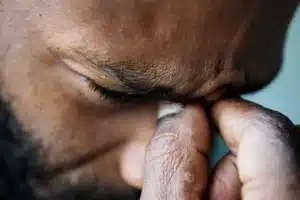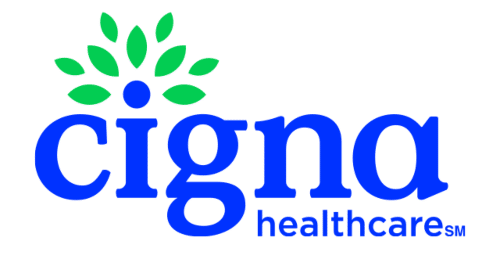People who suffer from depression may turn to substance abuse as a way to cope with their condition. While self-medicating with drugs and alcohol can temporarily alleviate depression symptoms, it can also increase the risk for addiction and increase the chances of long-term depression.
Understanding addiction and co-occurring depression, as well as the importance of treating them both early, can help you overcome each issue and live a happier life.
With knowledge about risk factors, symptoms, and treatment options, individuals with dual diagnoses can feel more empowered and engaged in their recovery.
Understanding Depression
Everyone feels down occasionally, and people often describe these feelings as being “depressed” during such temporary periods. Depression, however, is more than emotions like ups and downs or feeling sadness for a short while.
Depressive disorders such as major depressive disorder, persistent depressive disorder, and other forms of depression have symptoms that are indicative of sadness, boredom, or irritation and can affect a person’s body and mind, which can negatively impact their ability to function.
Depressive disorders can affect anyone, although researchers have identified multiple risk factors. Risk factors do not necessarily lead to depression, but they can definitely play a significant role.
Risk factors for depression include:
- Genetics — play a role in most illnesses, and depression is no exception. Having an immediate family member (parents, siblings) with depression can increase the risk of having depression by 200 to 400 percent.
- General health — such as physical fitness and the presence of any diseases can play a role in your mental health. Diabetes, heart disease, and other things can affect your neurotransmitters and influence depression. Even a physical injury can be damaging to one’s mental well-being.
- Stress — from traumatic experiences, work, school, family, or significant life changes can add to depression.
- Medication side effects — from certain pharmaceuticals can have side effects that can directly or indirectly cause depressive symptoms.
- Financial issues — and other complex socioeconomic factors through any part of your life can contribute to depression, even if in the past.
- Substance abuse — most drugs affect your psyche and can cause imbalances of neurochemistry than can cause you to be sad. Some of these side effects can be short-lived, but sometimes they can have lasting effects on your mental health — especially if used over long periods of time. Even quitting something as basic as caffeine can cause depression.
Co-Occurring Disorders: Substance Abuse and Depression
Dual diagnosis or co-occurring disorder occurs when a person suffers from both substance use disorder and mental illness at the same time.
The two disorders have a bi-directional relationship, which is why people who abuse drugs are more likely to become depressed, and vice versa. In order to escape depression, people may drink or take drugs to enhance their mood or ease their guilt or despair.
Suicide is approximately 10 percent more likely to occur in people suffering from depression. A person’s suicide risk rises to about 25 percent when they abuse substances.
According to the National Bureau of Economic Research, people who suffer from a mental disorder to some degree consume nearly 70 percent of the nation’s alcohol and 84 percent of its cocaine. And according to ISRN Psychiatry, depression among alcohol-dependent persons is very high with a 63.8% association between depression and the mean AUDIT score.
Alcohol Use Disorders Identification Test (AUDIT) Explained
The AUDIT has 10 questions with possible responses scored 0, 1, 2, 3 or 4, except questions 9 and 10 with possible responses scored by 0, 2 and 4.
The AUDIT test is scored by the following:
- Abstinence = 0
- Low risk consumption = 1-7
- Hazardous or harmful alcohol consumption = 8-14
- Alcohol Dependence = 15-40
You can check your drinking with the self-test provided on auditscreen.org.
Substance-Induced Depression
The use of drugs, including alcohol, over extended periods of time can exacerbate and accelerate changes in the cerebral regions of the brain.
When we think of depression and addiction, it can be a chicken and egg scenario; which comes first? It turns out that both depression and substance use can cause changes in neurochemistry, affecting the way we feel, think, and behave.
Whether one comes before the other changes case-by-case, no addiction is the same. Though, these cerebral changes can be seen to have generally similar effects.
One of the most affected cerebral regions include:
- The frontal cortex — which is vital to consciousness, memory, attention, social-emotional evaluation, and motivation. These changes can result in behavior that is highly led by habits and impulses, hyper-reacting to stimulations.
- The nucleus accumbens — often referred to as the “reward circuit.” These changes are closely associated with compulsive drug-seeking despite punishment. These changes can often be long-lasting, which is why some addicts can relapse with years of sobriety.
- The olfactory tubercle — which is the multi-sensory processing unit of the brain. It naturally also plays a role in the reward system and can trigger memory recall. A smoker smelling a burning cigarette, a heroin addict smelling vinegar, or even a visual stimulus of a needle are all things that can stimulate nostalgic memories of drug use.
- The hippocampus — plays a huge role in learning and memory. Studies suggest that initial drug use can actually enhance this region of the brain, but over time abuse can dull the hippocampus. This reaction often leads addicts to feel the need to continue using for “maintenance”, as abstinence can result in lowered cognitive function and problems with work, school, etc.
- The amygdala — plays a role in decision-making, memory, and emotional responses (especially fear, anxiety, and aggression). Drug-induced changes to this part of the brain plays a role in the adrenaline an addict gets when they know they’re going to “score.” It also induces feelings of fear when the addicted user knows the supply they’re dependent on is gone or fading, causing panic and reckless behavior to get more drugs.
- The hypothalamus — is important in hormone regulation. It acts as a connecting piece between the endocrine system and the nervous system. It plays a role in many bodily functions such as sleep, sex drive, body temperature, appetite and thirst, and other homeostasis maintaining functions. Damages here can have complex outcomes that may be unique to each drug user. For example, it can affect testosterone levels, or make the user more aggressive.
The abuse of drugs can affect other parts of the body, resulting in other issues. Though, the issues listed above seem to be rather general, whereas other drugs may have their own unique complications. One such complication is liver damage from continued alcohol abuse.
Recovering from Depression and Addiction
Despite having to overcome challenges inherent in the issues listed above, recovery from both depression and addiction is possible.
There are comprehensive treatment options for both depression and substance abuse. Medications can greatly reduce depressive disorders, and some medications can also be used to treat alcoholism, opioid addiction, and other disorders.
Research indicates that counseling and behavioral therapy can help a person learn healthy coping strategies for both conditions — through both inpatient care and outpatient care settings. In both treatment programs, peer support can be crucial.
Safe & Sound Treatment’s compassionate staff and community provide enjoyable company for the person in recovery, working towards a goal and celebrating life.
If you have struggled with depression and addiction and are ready to change your life, give us a call.
Talk to our admission specialists at our Costa Mesa Treatment Center and Huntington Beach Residential Sober Living by calling (949) 408-3711.













